‘Although it’s the drugs capital of England, it’s also the recovery capital’
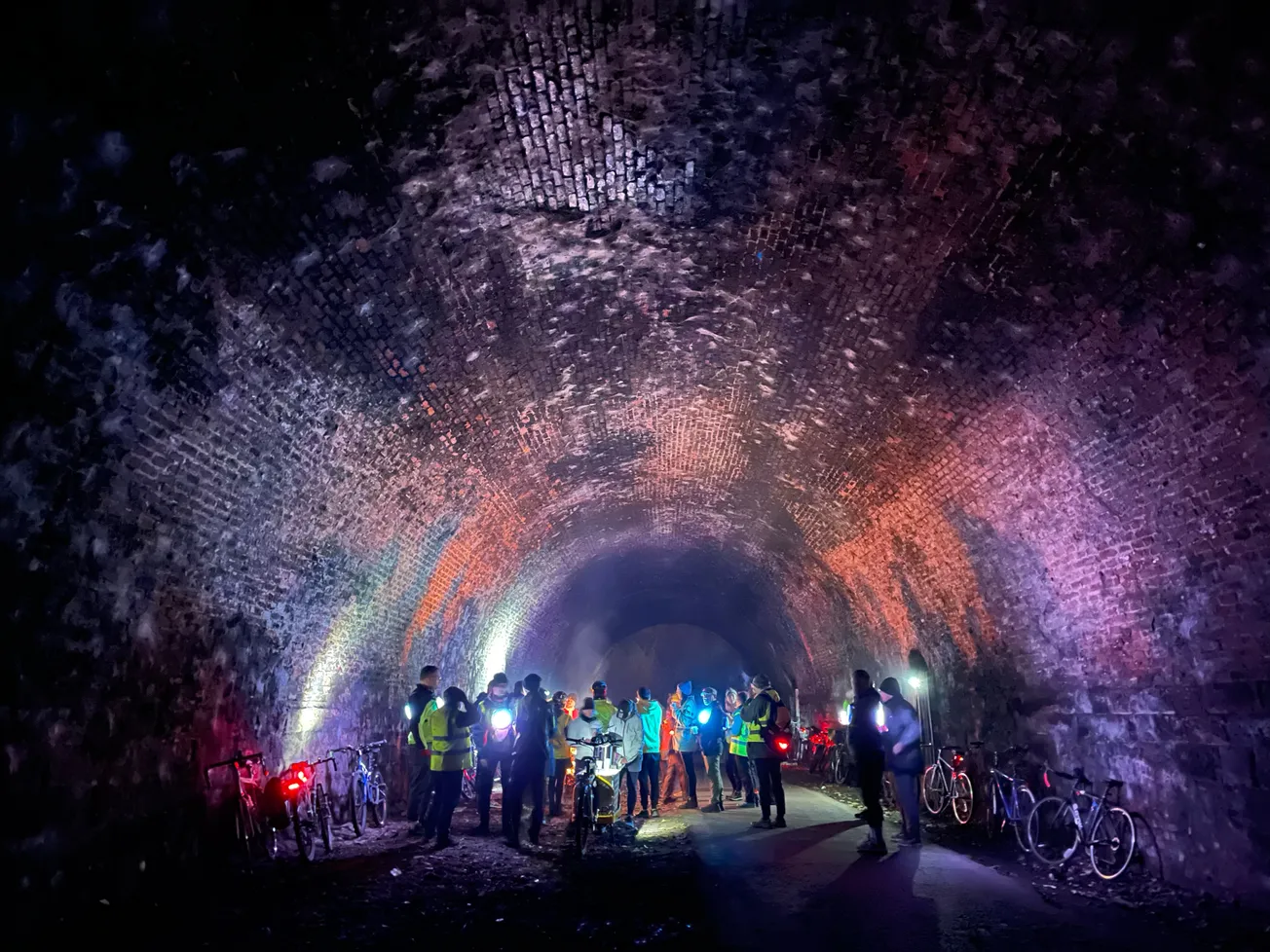
The endless high of a joyride round Liverpool
It’s quarter to seven on a Friday evening. Work finished 45 minutes ago, which means I could be 40 minutes through the first hazy IPA of the evening. “Ahhhh,” I imagine myself saying theatrically as I slap the empty glass down on the table like a poker player triumphantly laying down a winning hand. “Isn’t that lovely.”
I’m not doing that though. I’m actually in a 40-strong pack of cyclists hightailing past the Adelphi and through the city centre. It’s arguably better. At the front is Daniel Robinson. He has a boombox strapped to the back of his bike and it’s playing Albert Hammond’s breezy soft rock classic “It Never Rains in Southern California”. Bloody loud. In fact, it’s definitely better.
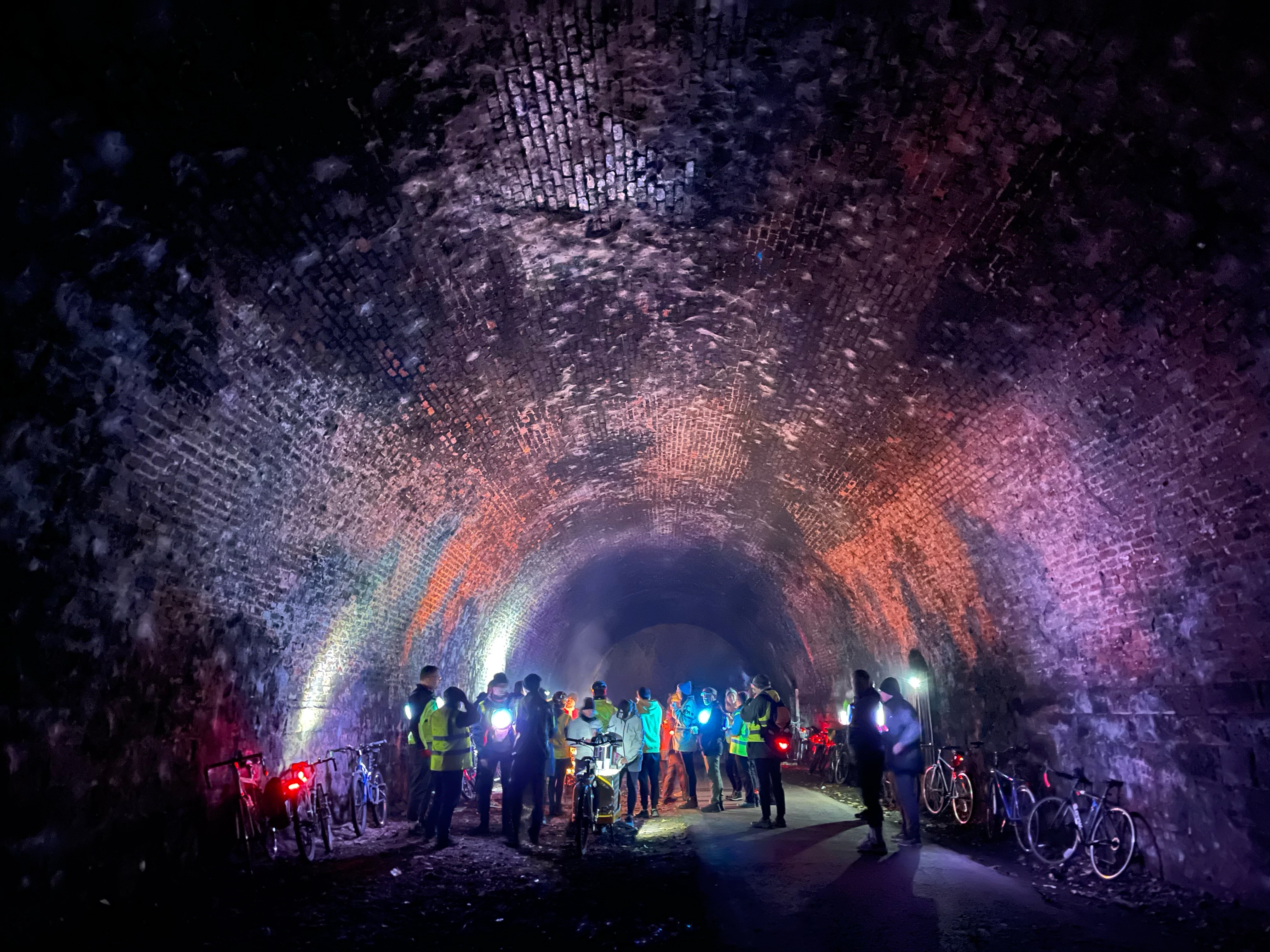
The ride — or joyride as it’s known — is on Friday because it was originally set up for people in recovery. Friday night was the time when the cyclists were most likely to get a bit itchy. “Or FOMO as you young people are calling it,” Daniel says when we chat a few days before the ride. I don’t mention hazy IPAs to be trivial either. The way Daniel sees it cycling replicates that “three pint sweet spot”: the buzz that comes from drinking before things descend into chaos.
This is all his brainchild. He started Peloton, Liverpool’s cycling co-operative, nine years ago while he was still working as a therapist at the University of Liverpool. He wanted to try a new kind of intervention, so approached the criminal justice system with a plan to train offenders to fix bikes and was given a workshop with South Liverpool Probation. Therapy with wheels.
Daniel runs Peloton with his childhood friend John. John is the pessimist. Daniel is the optimist. When I ask Daniel how well Liverpool caters to cyclists he says he understands why people have frustrations and the city needs to catch up with Manchester’s infrastructure, but it’s still one of the best cities to cycle. “It’s like a dream,” he says. “I still get excited like a little kid whenever there’s a new cycling lane opened up.” When I ask John the same question he says it’s a “load of absolute shit.”
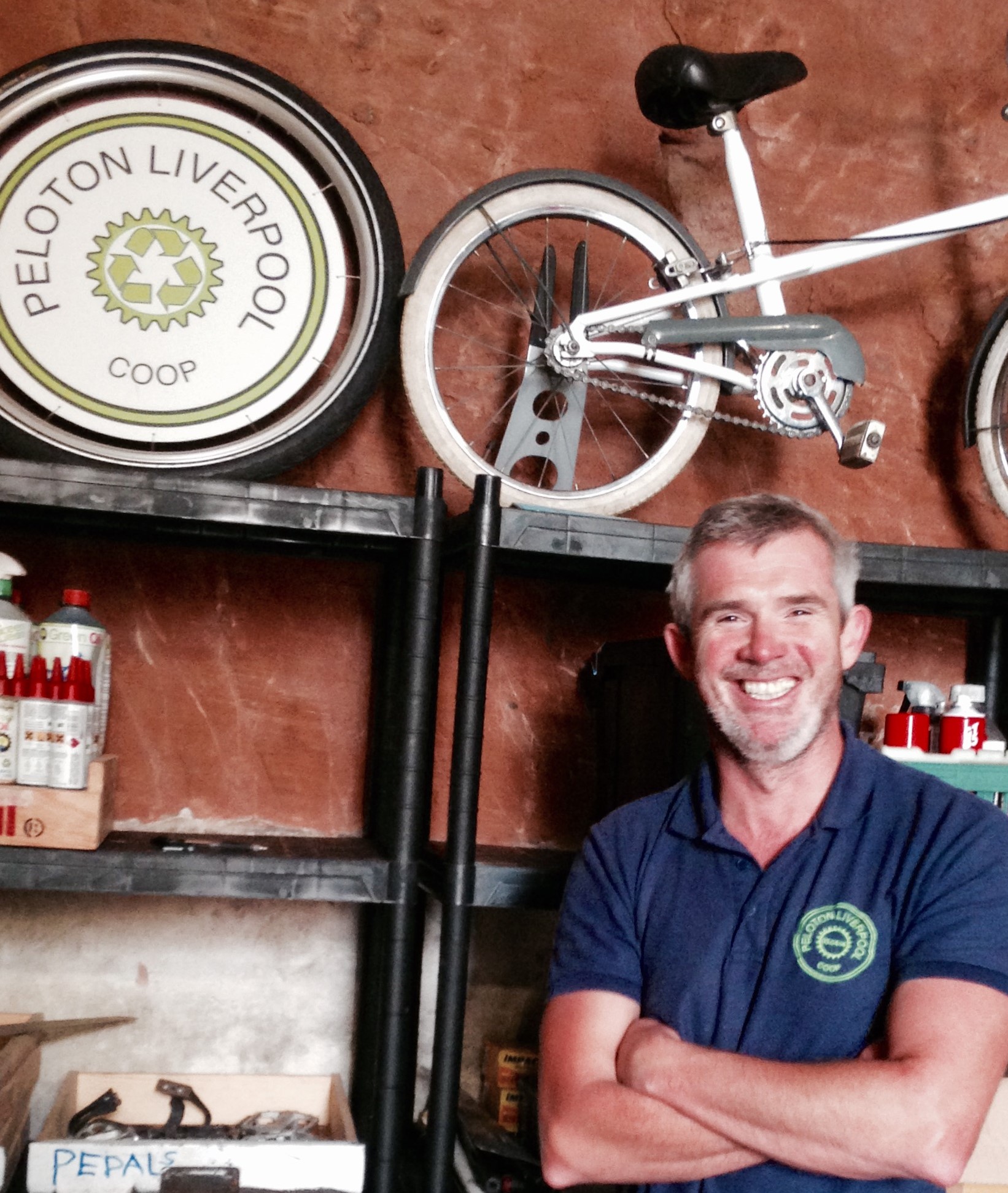
Daniel tells me how, when he was younger, there would always be a guy on the street who would fix up people’s bikes. A real life folk character. The man whose door you’d knock on and go “excuse me mister, my wheels need sorting” and he’d do it. Things change of course (resident amateur bike mechanics simply aren’t a fixture of the 21st century street — more fool us) but he wanted the bike shop to take up that role in a sense. To give people who’d come out of prison the pride that comes with doing something properly and well, and for the benefit of someone else.
After the shop came the rides. The idea there was to transfer the conditions of the therapy room in a new way. “A lot of people might be resistant to counselling, so we get them out cycling instead,” Daniel explains, as though that’s a natural A-to-B. He’d always used cycling as a therapeutic tool himself. Grabbing your tent and your bike and heading into the outdoors. Not knowing what you’ll face that day.
Before we set out, Daniel bounces from person to person at the start point; greetings, welcomes, high fives. He’s like an excitable head of state on a foreign diplomacy mission. There’s a reason for it though. The aim is to remove the “threat” of the experience. To make everyone feel that bit more at ease. And if you haven’t got a bike, he’ll lend you one. It isn’t about the equipment.
Paul was one of the first on board. He used to think bikes were for picking up drugs. He’d been an addict and a user himself, before getting clean “by accident” 15 years ago. He’d found himself in a hole, estranged from family and unable to hold down a job. But he made it to rehab and for “whatever reason” stuck with it. It was his idea to get the men in recovery at Damien John Kelly House (the centre in Wavertree that supports recovering addicts, where he works) involved four years ago.
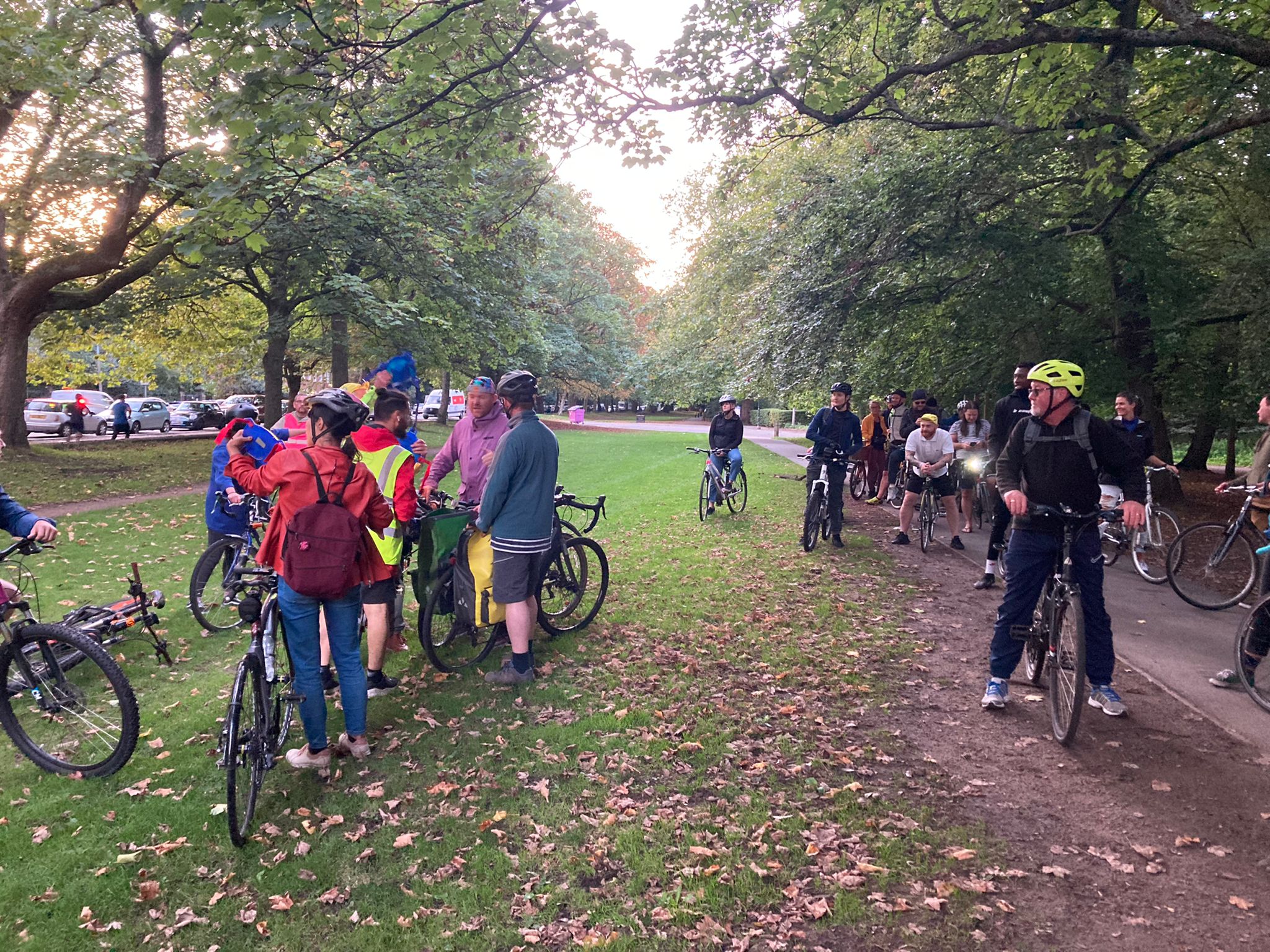
Paul doesn’t want to talk too much about the details of his, or anyone else’s, addiction. “We want to focus on something positive,” he says. So when I ask him why it is that Liverpool ranks so highly in drug-use statistics, he gives an interesting answer. “People always say this about Liverpool being the drug capital of England,” he says. “And that’s because it’s true. But although, or even because it’s the drugs capital of England, it’s also the recovery capital.”
The city’s recovery community is several thousand strong now. Paul knows people from outside Liverpool who come here just to get clean. “Their families think it’s hilarious. ‘I’m going to Liverpool to get off smack’ sounds so absurd. But they manage it,” he says.
As we getting going, I strike up a conversation with a fellow rider. He’s been coming on these rides for two years now, but every time the route is different. Today’s takes us through the city centre down to the docks, then up through the Baltic Triangle, back out towards the Mersey, back inside through Toxteth, up Princess Drive, round and round Sefton Park and then back home. That’s the abridged version anyway. Within 20 minutes I’ve seen more square feet of Liverpool than I probably have in the last two months.
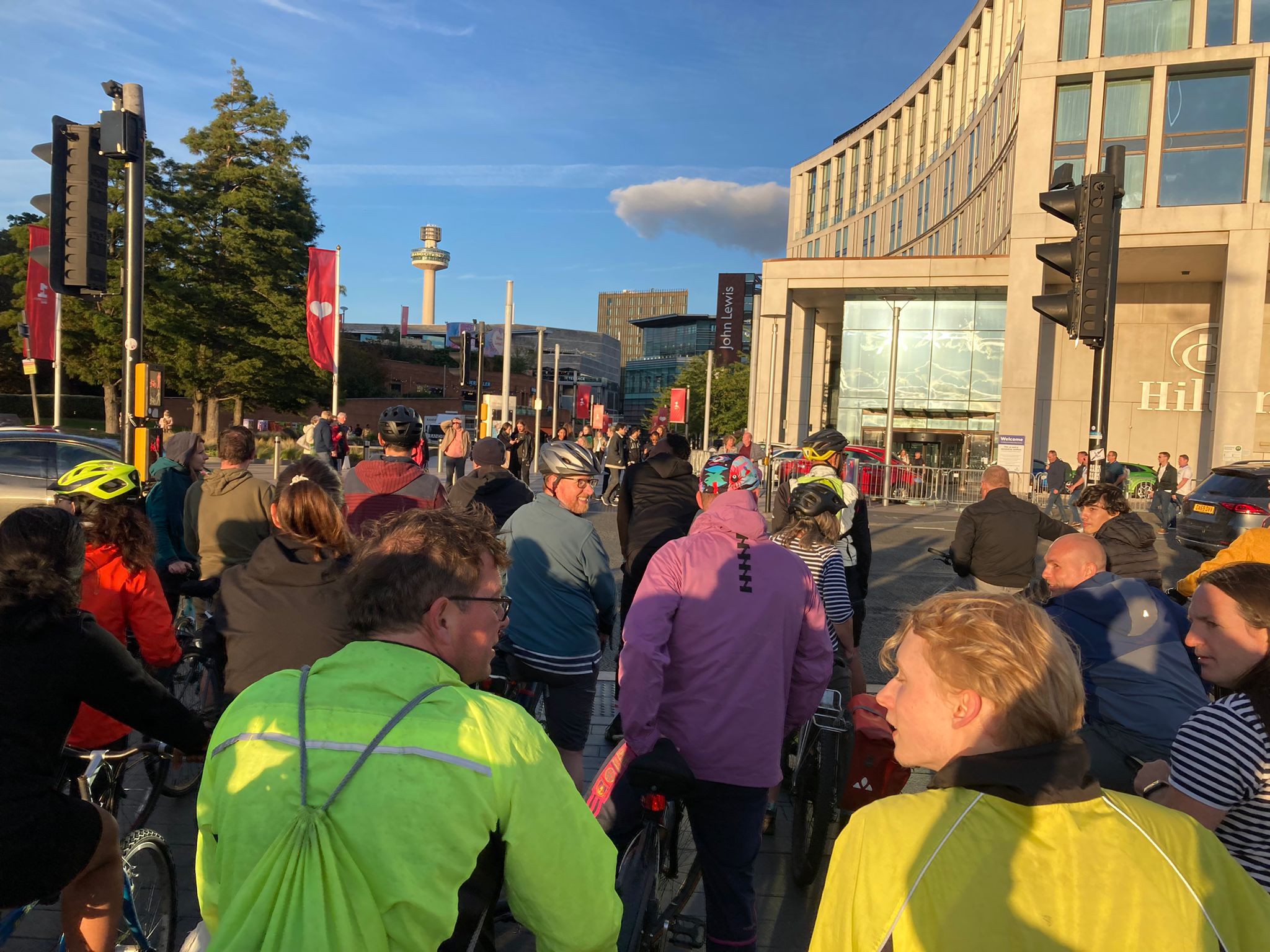
Daniel remembers his first bike. A Raleigh Striker; silver with a spongy saddle he would pick at. His dad didn’t really do Christmas or birthdays, but sometimes he found himself “with a few bob” and one time he came home and pointed at him and his brother: “You two, lets go.” They went to a bike shop and had their pick. The Striker cost £80, a lot of money in 1979. His brother got a Grifter. “It was random and so beautiful. I was like: ‘you’re a God,’” Daniel says.
There’s something about bikes. Paul describes the pride it instils for people in recovery to look after their bike. The attachment you feel to an object that creates a point of self-determination. There’s also a mesomorphic appeal to them; a hypnotic quality we attach to repeated motion. The combination of these things focuses the brain on a singular task: all you have to do is move your legs and make sure the bike stays up. Over and over. Maybe that’s why it helps people in recovery, you’re focusing on this one point — like sobriety — and repeating.
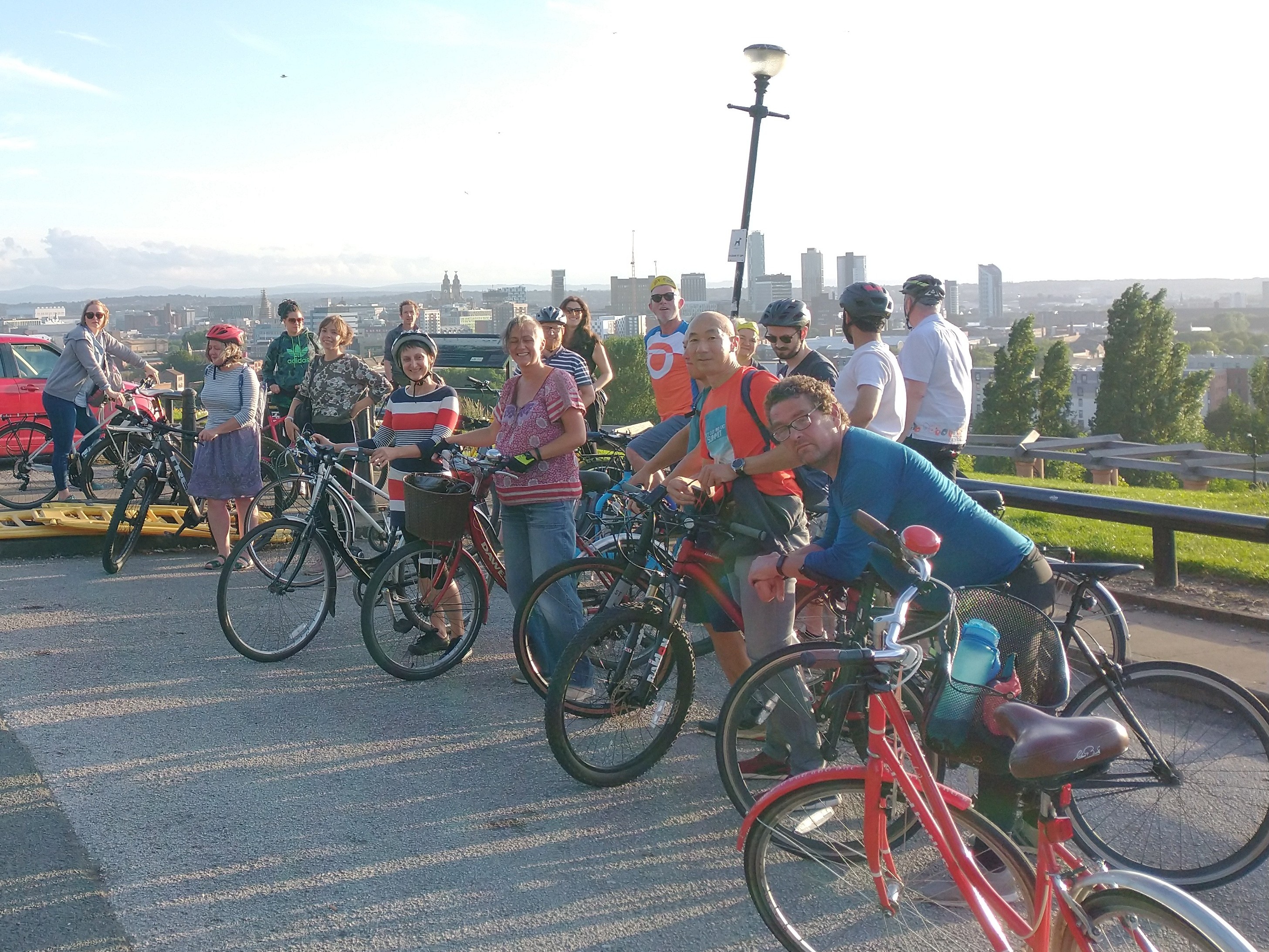
TG, aged 39, is one of the cyclists. He’s five months into recovery, after his drinking left him feeling suicidal and “hopeless”. But that was five months ago. He went along originally, he says, “because everyone else was”. He’d never been into cycling, or trying new things. TG has now bought his first bike and started exploring parts of Liverpool he never knew existed by himself, but the community aspect of the group rides can’t be replaced. “I was such a loner,” he says. “But connection and belonging are vital. I’ve only just realised this.” Then he adds: “I reckon I’ll do this forever.”
At the midpoint of the cycle there’s a change in tone. It’s getting dark so lights are distributed around the group. They are slung over the shoulders and light up the torso, so one man says he feels like he’s wearing an advertising board for jumbo hotdogs. The breezy music is swapped out for heavier beats and electronic cuts as we move through the depths of the park. “Before we were like gulls gliding through the city and swooping down for people’s McDonalds,” Daniel roars like a gladiator about to enter the arena. “Now we will be like bats flying in the night.”
Why does cycling have a therapeutic benefit? There are a lot of studies on the matter, but Daniel cites one called “flow”. It’s a state of immersion the body enters when it focuses solely on a task, particularly involving movement. According to Hungarian-American psychologist Mihaly Csikszentmihalyi, who coined the term, flow is “a state in which people are so involved in an activity that nothing else seems to matter”.
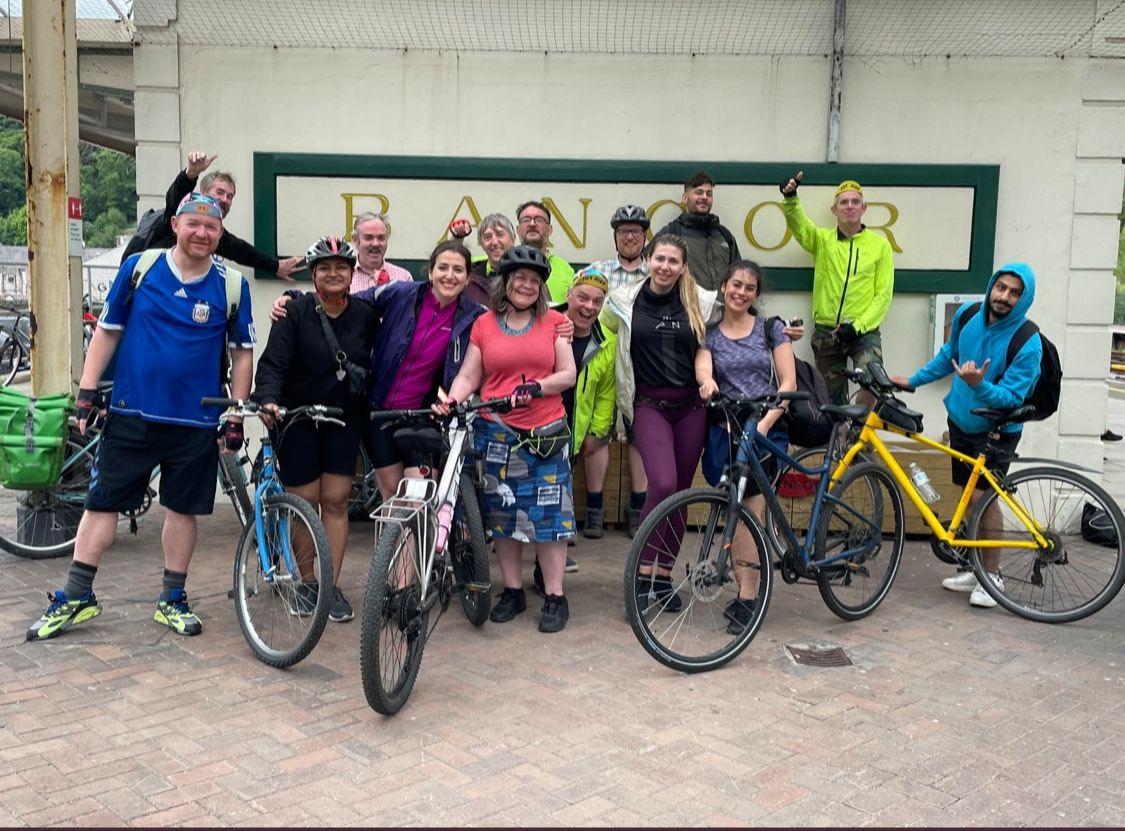
Unless you can afford to go skiing or hang-gliding, cycling is your best bet as a flow junkie. It’s those steep declines when the feet stop pedalling and you don’t want to brake. “If you’ve been a user you understand what it’s like to get high,” Paul says. “But that’s followed by an awful comedown. We’ve experienced natural highs; when you’re on your bike in a valley in Wales and the sun shines off the river and it gives a sense of gratitude and happiness.”
Peloton now runs other projects. “Mollycoddle” is for mums and babies (Daniel’s reading is that Liverpool is still a deeply matriarchal city so if he can get mums on bikes that should spawn younger bike users) and “Cycle without age” is for the elderly. The latter is a project that exists across more than 50 countries, having started in Copenhagen in 2012. They work with residential care homes, taking the residents out in trishaws. It aims to increase the visibility of older people. “When you see them in the park they’re a little bit like the royal family, waving at passers by,” Daniel says.
Winding to a close, we cycle through the Liverpool Cathedral graveyard and disturb an after-hours ghost tour. Daniel suggests that he’s lined up at a late-night rave in the Cathedral, and while he’s thankfully joking (my legs are crumbling like Oxo cubes) it isn’t that far-fetched. One rider tells me about the time they cycled to Birkenhead and he arranged a police escort through the Queensway tunnel.
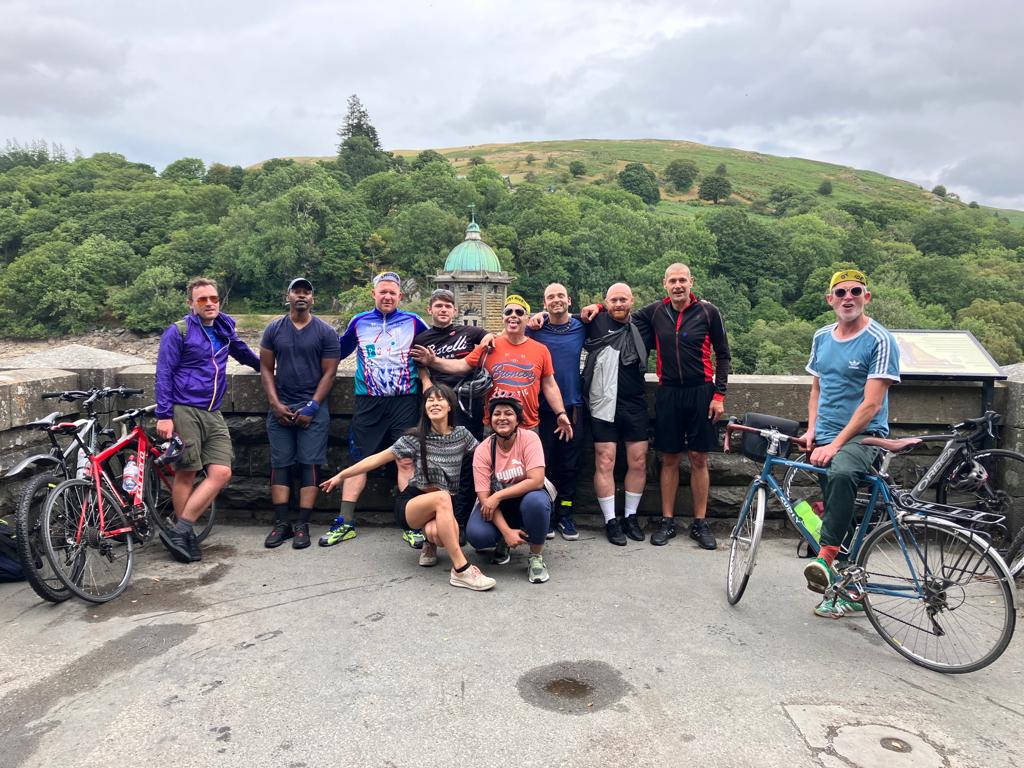
Peloton has now inspired splinter groups. This is a spreading movement. A recent survey of the joy-riders showed that they came from postcodes evenly dispersed across the city too, which is key for Daniel: the lycra-clad post-London 2012 professional whizzing through the weekend on a carbon fibre spaceship might have his place, but this is more nuts and bolts. Guerilla cycling. And it’s working. “We’re all moving in the right direction,” TG says. “Sometimes quickly, sometimes slowly. But we’re all getting there.”
What really makes the experience is the reactions. Cycling through Liverpool on a Peloton joyride is sort of like being part of a Hollywood A-lister’s cortege. Cars beep their horns, drinkers raise their pints and holler, mothers prompt babies in buggies to wave. Even Victorian ghost tour lady lifts her kerosene lantern. A group of adolescents huddled on a park bench smoking weed after dark are equally impressed: “That’s fucking class”.
And no one seems to care much that 40 bikes are hogging half of Princes Drive (though online forums would have you believe cyclists and drivers were as tribal as Crips and Bloods). Nor does anyone threaten to report us to the Office of Environmental Health for noise pollution, despite the fact the boombox playing in Sefton Park is likely audible in Stanley. There must be something to it. Maybe all we need in these divided times are musical bikes.

Comments
Latest
And the winner is...
Losing local radio — and my mum
A place in the sun: How do a bankrupt charity boss and his councillor partner afford a “luxury” flat abroad?
Gritty, cheeky, sincere: How Martin Parr captured the spirit of Merseyside
‘Although it’s the drugs capital of England, it’s also the recovery capital’
The endless high of a joyride round Liverpool